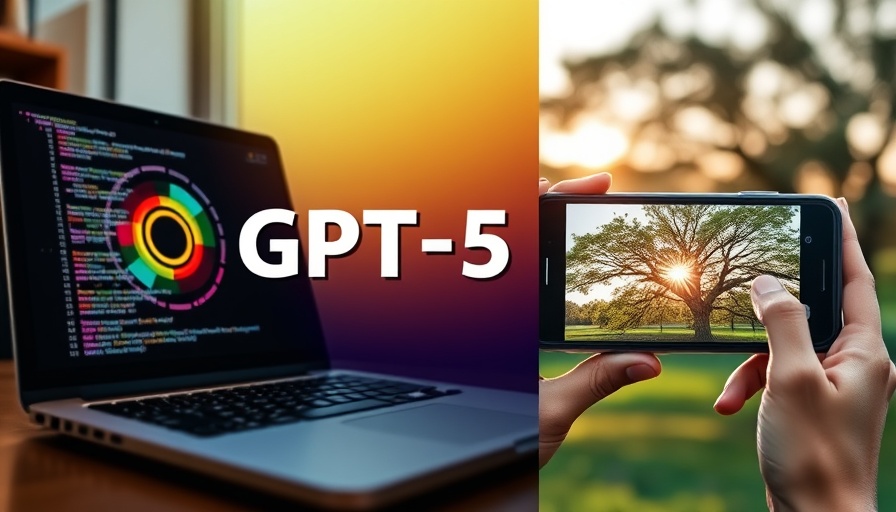
Understanding the Rise of ChatGPT: A Productivity Revolution
Since its launch in late 2022, ChatGPT has become a key player in the AI landscape, attracting over 300 million weekly active users eager to harness its capabilities. This evolution has transformed it from a simple productivity tool into a pivotal resource for professionals across various industries. Its powerful text generation abilities allow users to enhance their writing, code, and research efforts efficiently.
Game-Changing Partnerships and Technological Advancements
In 2024, OpenAI sought to broaden ChatGPT's functionalities by partnering with Apple for a new product suite named Apple Intelligence, highlighting the trend of tech giants gravitating towards generative AI solutions. The release of the upgraded GPT-4o model, boasting advanced voice capabilities, and the anticipated launch of a text-to-video model, named Sora, signify major technological strides. These advancements aim to keep OpenAI competitive in an increasingly crowded market.
Facing Challenges and Internal Dynamics
However, the path has not been smooth for OpenAI. The company has navigated a turbulent internal landscape, marked by the departure of key executives, including co-founder Ilya Sutskever and CTO Mira Murati, sparking discussions about leadership and vision. Moreover, external challenges have surfaced in the form of lawsuits claiming copyright infringement and an injunction initiated by Elon Musk to halt the transition of OpenAI into a for-profit entity.
Competition and Strategic Positioning
The narrative surrounding OpenAI in 2025 has been shaped by a growing perception that it might be ceding ground to Chinese AI rivals, such as DeepSeek. In a bid to reassert its position, OpenAI is intensifying efforts to secure relationships with Washington to promote favorable regulations. Additionally, the company is reportedly orchestrating one of the largest funding rounds in tech history to bolster its capabilities.
Research Findings: The Impact on Critical Thinking
As ChatGPT users extensively interact with the software, a recent MIT study raises alarms about its impact on critical thinking skills. Researchers at MIT’s Media Lab studied brain activity in participants and found that those using ChatGPT exhibited diminished engagement in cognitive tasks. Specifically, the study involved monitoring 54 participants aged 18 to 39, partitioned into groups to explore the effects of AI on problem-solving abilities.
Future Opportunities and Strategies
As more businesses integrate AI tools like ChatGPT into their workflows, it’s imperative for CEOs and marketing managers to consider how these technologies can enhance efficiency while maintaining critical cognitive skills. Future users can strategize around the incorporation of AI, ensuring it's a complement, not a substitute, for human creativity and critical thinking. This alignment could embody a new approach, where AI is employed as a co-pilot, assisting in achieving both productivity and innovation.
Conclusion: The Road Ahead for ChatGPT Users
As ChatGPT continues to evolve, staying abreast of its updates and implications is essential for business professionals navigating the tech landscape. CEOs and marketing managers should leverage this understanding to shape their organizations' strategic direction in an AI-driven market. The ongoing dialogue around AI's ethical dimensions and human collaboration will significantly influence business tactics and innovations moving forward.
Are you ready to integrate AI into your operations effectively? Embrace the potential of AI technologies like ChatGPT while fostering critical thinking within your teams.
 Add Row
Add Row  Add
Add 




Write A Comment